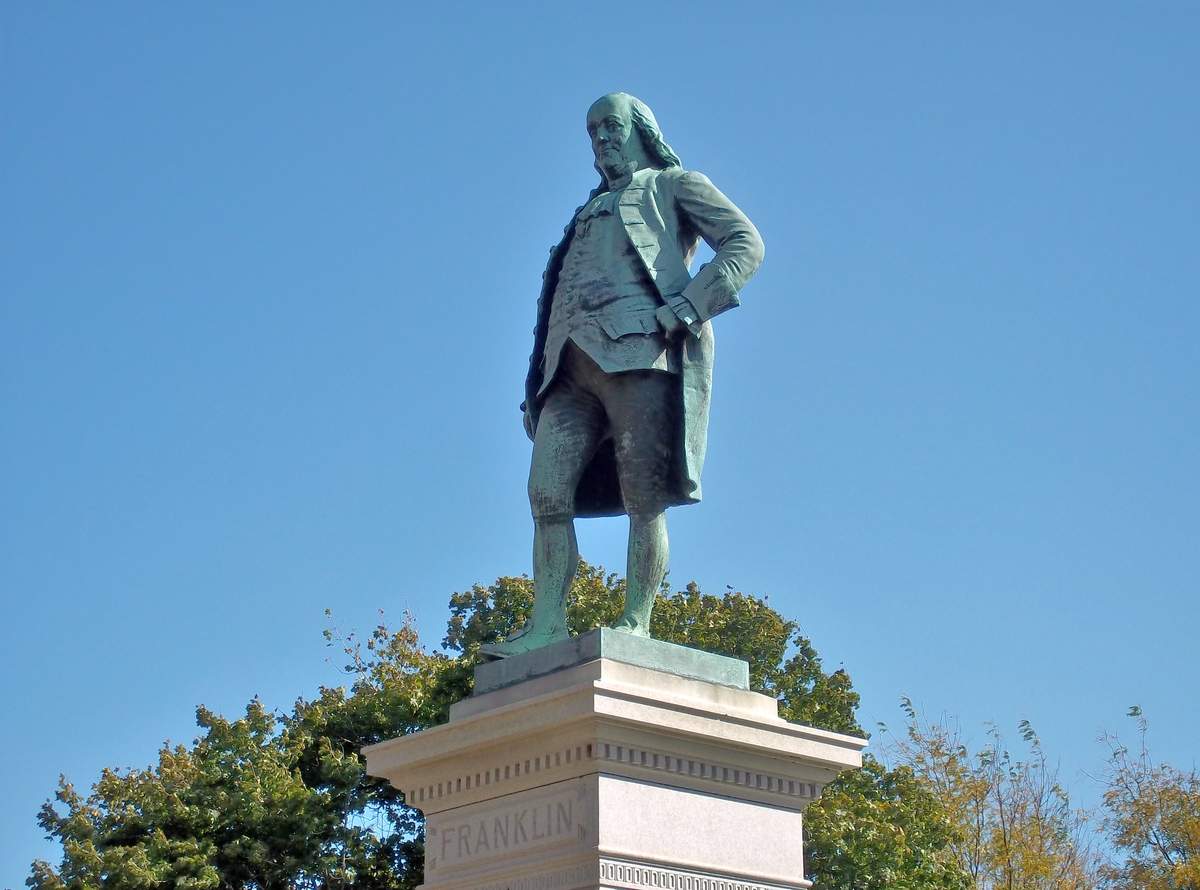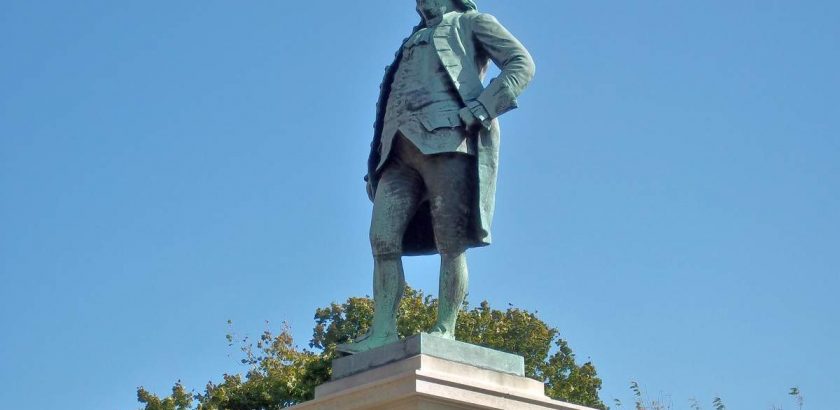Intimate Tickles Thought You Might Be Interested
Published: Wed, 17 Jan 2018 06:00:00 +0000
View Original Article

Founding Father Benjamin Franklin was born on this day in 1706, in Boston, making today Ben Franklin Day. He was a polymath, or expert in many subjects. Some of the titles that could be given to him are inventor, scientist, politician, diplomat, civic activist, printer, author, postmaster, and mapmaker. He also founded or was a part of many organizations and groups.
Franklin was the tenth and youngest son of a soap and candle maker, Josiah Franklin, and Josiah’s second wife, Abiah Folger. The elder Franklin wanted his son to follow the path of a preacher, but did not have the money to send him to school. Benjamin only attended school up until the age of ten, when he began working full-time in his father’s shop. At the age of twelve he was sent to apprentice his older brother James, who was a printer. James started The New England Courant in Boston when Benjamin was fifteen. Benjamin wanted to be printed in the paper, but James would not allow it. So, he wrote letters under name of Silence Dogood, a fictional widow, and slid them under the print shop door at night. The fourteen letters he wrote were published; they gave advice and were filled with critical observations of the world. Benjamin eventually confessed to writing them, and James was not happy. Later, after harassment and beating at the hands of his brother, Benjamin ended up running away to New York, and then ended up in Philadelphia in 1723.
In Philadelphia, Franklin found work as an apprentice printer. He then went to England for several months of print work. He came back to Philadelphia and helped out a printer, but eventually borrowed money and set up his own printing business a few years later. Franklin bought the Pennsylvania Gazette in 1729, which became the most widely read newspaper in the colonies. He printed it and contributed pieces under aliases.
In 1728, Franklin had a son, William; it is not known who the mother was. In 1730, he married Deborah Read; it was a common-law marriage, as Read’s first husband had deserted her. The Franklin’s had two children: Francis, born in 1732, died at the age of four from smallpox. Sarah was born in 1743.
The Library Company, the nation’s first subscription library, was founded by Franklin in 1731. He started publishing Poor Richard’s Almanack in 1733, under the pseudonym of “Richard Saunders.” Its lively writing and witty aphorisms separated it from other Almanacs of the day, and it was printed for twenty-five years. The first fire department of Philadelphia, the Union Fire Company, was organized by Franklin in 1736. Franklin also worked for environmental cleanup in the city, and launched projects and advocated for paved and lit streets. The first learned society in the country, the American Philosophical Society, was launched with the help of Franklin. In 1751, he brought together another group of people to form the Pennsylvania Hospital.
Franklin’s bright mind came up with many inventions. His 1752 kite and key experiment demonstrated that lightning was electricity, and he also invented the lightning rod. He came up with other electricity related terms that we still use today, such as “battery.” He invented a fireplace that became known as the “Franklin stove.” Compared to the popular fireplaces of its time, it gave off more heat and used less fuel. Franklin refused to patent it, and wanted his invention to serve others freely. Franklin invented bifocals, which could be used for both distance and reading. He even invented a musical instrument, the armonica, which Beethoven and Mozart wrote music for. He charted the Gulf Stream and gave it its name, and suggested the idea for, and helped design the first penny in the United States.
In 1757, Franklin went to England to represent the Penn family over who should represent the colony. Until 1775 most of his time was spent in England. He served as a Colonial representative for Pennsylvania, Georgia, New Jersey, and Massachusetts. His wife Deborah died in 1774, while he was still in London.
Franklin was originally a loyalist, but after the 1765 Stamp Act his views shifted. He testified before Parliament, helping persuade members of that body to repeal the law. He later became embroiled in what became known as the “Hutchinson Affair.” Thomas Hutchinson, an English appointed governor, had written letters that had called for the lessening of liberties of colonists. Franklin got ahold of the letters and sent them to America. He was condemned publicly, and soon came back home.
He was elected to the Second Continental Congress, and was part of the committee of five that drafted the Declaration of Independence. He also was a signer of the Declaration. He was the first Postmaster General of the United States; long after his death he was honored by being put on the first US postage stamp.
He left America to become the first Ambassador to France. During this time he helped secure a treaty with them in 1778. He also helped to secure loans during the war. When the guns fell silent, he was present at signing of Treaty of Paris in 1783, which formally ended the war.
Franklin returned to his home country, and became a delegate at the Constitutional Convention; he signed the Constitution, being the oldest person to do so. Although Franklin owned slaves early in his life, his views changed over time, and in his last years he worked for the abolition of slavery. After suffering from gout and other ailments, he died on April 17, 1790, at his daughter Sarah’s home. His funeral was attended by 20,000 people.
It is fitting a day would be dedicated to Benjamin Franklin, as he is so much more than just the man on the $100 bill. The breadth and scope of his achievements are almost unparalleled, not only in his political contributions to a fledgling country, but in his many other pursuits as well.
Here are just some of his accomplishments and activities:
As writer/printer/publisher:
- wrote as Silence Dogood in The New England Courant
- published Poor Richard’s Almanack for twenty-five years
- owned the Pennsylvania Gazette
- wrote an acclaimed autobiography
As an inventor:
As a founder:
As a politician:
- Colonial representative in England
- member of Second Continental Congress
- first Postmaster General of the United States
- helped draft the Declaration of Independence and signed it
- first ambassador to France
- present at signing of Treaty of Paris
- delegate to Constitutional Convention and signed Constitution
Ben Franklin Day, also known as Benjamin Franklin Day, is being observed today! It has always been observed annually on January 17th.
